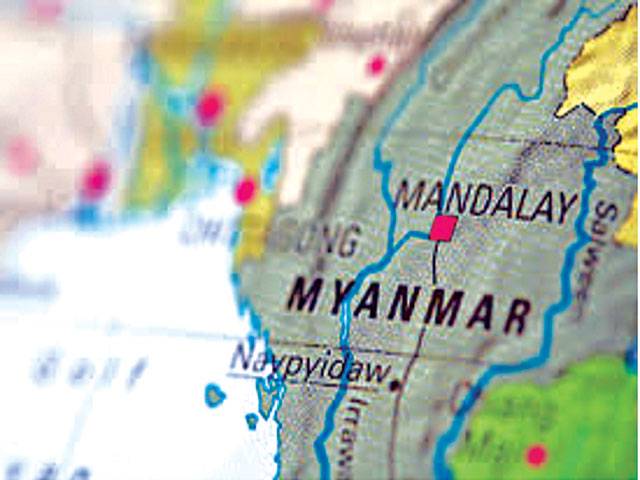YANGON - The United States, Japan and other major powers on Tuesday raised fears that rising religious tensions in Myanmar could spark “division and conflict” as campaigning begins for historic elections.
Myanmar goes to the polls on November 8 in what many hope will be its freest vote in generations after decades of army rule, with Aung San Suu Kyi’s opposition party widely tipped to make huge gains.
But religious tensions are spiking in the Buddhist-majority country, which has seen sporadic outbursts of often deadly religious unrest in recent years, with minority Muslims facing increasing political exclusion as the influence of nationalist monks grows.
Religious unrest has overshadowed Myanmar’s reform efforts as it begins to emerge from the grip of outright military rule under a quasi-civilian government, which came into power in 2011.
The impoverished nation has seen sporadic outbursts of anti-Muslim violence since 2012, when festering resentments between Buddhists and Rohingya Muslims in Rakhine state erupted in two rounds of bloodshed that left at least 200 dead and 140,000 displaced.
Unrest spread across the country in tandem with the rise in influence of nationalist Buddhist clerics.
In March Myanmar revoked temporary identification documents - a move affecting hundreds of thousands of Rohingya, who have since been stripped of voting rights after parliament banned people without full citizenship from voting.
As elections near, Suu Kyi has accused opponents of “using religion” against her National League for Democracy party.
But neither her opposition or the ruling party has put forward any Muslim candidates for the polls, despite the minority making up some four percent of the population.
On Monday hundreds of monks gathered in Yangon to begin two weeks of ceremonies across Myanmar to celebrate the passage into law of four controversial “religious protection” bills, including one that restricts interfaith marriage, that activists say discriminate against women and religious minorities.
Thursday, April 18, 2024
Int’l alarm over Myanmar religious tension ahead of polls

President appoints Justice Ibrahim as PHC chief justice, Justice Kakar as BHC chief justice
9:51 PM | April 18, 2024
PTI's Yasmin Rashid transferred to Lahore hospital due to health concerns
9:40 PM | April 18, 2024
SC orders ECP to issue new schedule for re-polling in PP-51 Chaman
9:38 PM | April 18, 2024
Fourteen-member Balochistan cabinet to take oath tomorrow, says spox
9:36 PM | April 18, 2024
'That'll be awesome,' Rohit Sharma on idea of Pakistan vs India Test series
9:17 PM | April 18, 2024
Hepatitis Challenge
April 18, 2024
IMF Predictions
April 18, 2024
Wheat War
April 18, 2024
Rail Revival
April 17, 2024
Addressing Climate Change
April 17, 2024
Justice denied
April 18, 2024
AI dilemmas unveiled
April 18, 2024
Tax tangle
April 18, 2024
Workforce inequality
April 17, 2024
New partnerships
April 17, 2024
ePaper - Nawaiwaqt
Advertisement
Nawaiwaqt Group | Copyright © 2024





